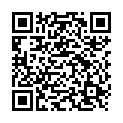|
|
|
| Module code: PIBWN11 |
|
4V (4 hours per week) |
|
5 |
| Semester: 6 |
| Mandatory course: no |
Language of instruction:
English |
Assessment:
Project work
[updated 26.02.2018]
|
KI671 Computer Science and Communication Systems, Bachelor, ASPO 01.10.2014
, semester 6, optional course, non-technical
KIB-INEC (P241-0162) Computer Science and Communication Systems, Bachelor, ASPO 01.10.2021
, semester 6, optional course, non-technical
KIB-INEC (P241-0162) Computer Science and Communication Systems, Bachelor, ASPO 01.10.2022
, semester 6, optional course, non-technical
MAB.4.2.6.4 (P241-0162) Mechanical and Process Engineering, Bachelor, ASPO 01.10.2013
, semester 6, optional course, non-technical
PIBWN11 Applied Informatics, Bachelor, ASPO 01.10.2011
, semester 6, optional course, not informatics specific
PIB-INEC (P241-0162) Applied Informatics, Bachelor, ASPO 01.10.2022
, semester 4, optional course, not informatics specific
Suitable for exchange students (learning agreement)
|
60 class hours (= 45 clock hours) over a 15-week period.
The total student study time is 150 hours (equivalent to 5 ECTS credits).
There are therefore 105 hours available for class preparation and follow-up work and exam preparation.
|
Recommended prerequisites (modules):
None.
|
Recommended as prerequisite for:
|
Module coordinator:
Prof. Steven Frysinger |
Lecturer: Prof. Steven Frysinger
[updated 11.02.2009]
|
Learning outcomes:
After successfully completing this module, students will be able to:
- Define environmental science and describe the key environmental challenges presented by industrial society;
- Define industrial ecology and explain the metaphorical relationship between industrial systems and biological ecosystems;
- Interpret the _master equation_ of industrial ecology and explain the role of technology in the pursuit of a more sustainable industrial society;
- Define and give examples of the concepts of Design for Environment and Environmentally Conscious Manufacturing;
- Provide a detailed explanation of the Life Cycle Assessment methodology and carry out such an assessment on a product/system;
- Discuss allocation of environmental loads to system components;
- Interpret the role of Life Cycle Assessment in environmental management decision-making.
[updated 26.02.2018]
|
Module content:
We will study the theoretical underpinnings of IE, briefly examining the biological metaphor for industrial ecosystems. We will also address various elements of practice which are associated with IE, especially Life Cycle Assessment and Design for Environment. Our goal is to better understand how industrial ecology can help us to evolve into a sustainable industrial society.
[updated 26.02.2018]
|
Recommended or required reading:
GRAEDEL, T. E./ B. R. ALLENBY, B.R.: Industrial Ecology. Prentice Hall, 2003.
[updated 26.02.2018]
|
Module offered in:
SS 2022,
SS 2021,
SS 2020,
SS 2019,
SS 2018,
...
|


